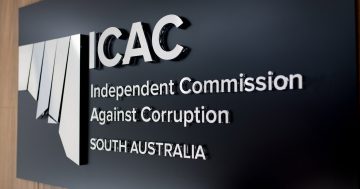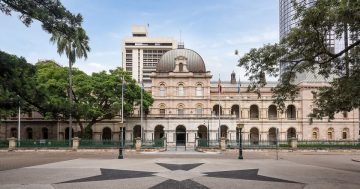 The Independent Commissioner Against Corruption has come out against amendments to the Act which empower her Commission, claiming the changes undermine its ability to ensure the integrity of public administration in South Australia.
The Independent Commissioner Against Corruption has come out against amendments to the Act which empower her Commission, claiming the changes undermine its ability to ensure the integrity of public administration in South Australia.
Releasing her Report, An examination of the changes effected by recent amendments to the Independent Commission Against Corruption Act 2012, Commissioner, Ann Vanstone said the amendments altered the operations of the Independent Commission Against Corruption (ICAC) and limited the matters it could investigate.
Commissioner Vanstone said her Report set out in detail how the Independent Commissioner Against Corruption (CPIPC Recommendations) Amendment Act 2021 created “an increased risk of corruption remaining hidden and undermined the ability of public administration to deal with it”.
“I do this because I consider the increased risks of corruption created by the amending Act are of such significance that the public interest requires me to bring them to the attention of the community and the Parliament,” Commissioner Vanstone said.
“The changes do little to improve the capacity of the public integrity scheme to identify, investigate, prevent or minimise corruption in public administration,” she said.
“On the contrary, the changes create an increased risk of corruption remaining hidden and undermine the ability of public administration to deal with it.”
Commissioner Vanstone said the amendments included a significant reduction in matters the Commission could investigate, including reducing its ability to investigate “dishonesty offences committed by public officers”.
The Commissioner said the amending Act also narrowed the definition of corruption; meant the ICAC could no longer start its own investigations; had no control over the outcomes of its investigations; and that some public officers who were convicted of indictable offences would be able to have their legal costs reimbursed from public funds.
She said the changes also removed the Commission’s ability to communicate with the public when corruption had been found, which would “impede the Commission’s and the public sector’s ability to prevent corruption, creating a real risk that it will become more prevalent”.
Commissioner Vanstone said suggestions had been made that the amendments reflected recommendations made by the Crime and Public Integrity Policy Committee (CPIPC) in its December 2020 however, she said this was misleading.
“The most significant changes made to the integrity scheme were not dealt with in the CPIPC’s report and, in some respects, are contrary to the tenor of its recommendations,” she said.
The Commissioner’s 17-page Report can be accessed at this PS News link.










